Tiger King's Carole Baskin addresses missing husband with info not in the documentary
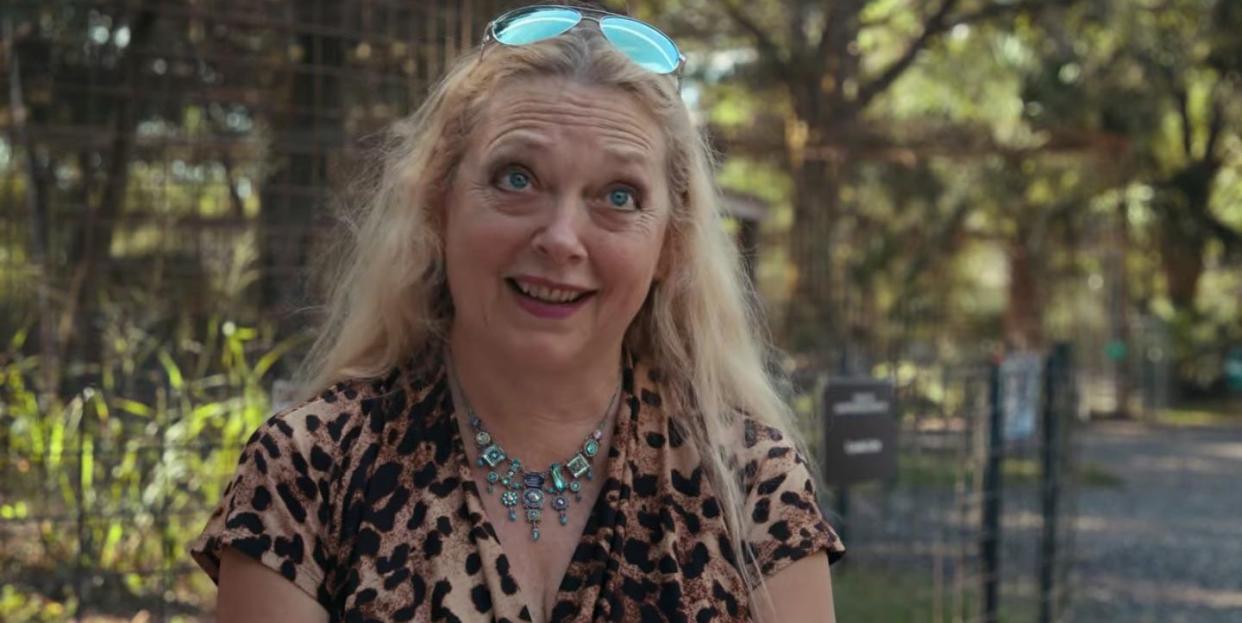
Carole Baskin was one of the central players in the truly bonkers Tiger King documentary that recently arrived on Netflix. The revelation about her missing former husband Jack Donald 'Don' Lewis provided one of the first big jaw-drop moments of the seven-part series.
In among the truly eccentric world of big cat owners and dealers, this particular true-crime series will have you flip-flopping between what you believe and who you suspect. For Carole, who owns Big Cat Rescue (an organisation that advocates for the end of abuse towards big cats in captivity), the series painted her as the main adversary of Joe Exotic who, for a time, owned one of the USA's most famous private zoos.
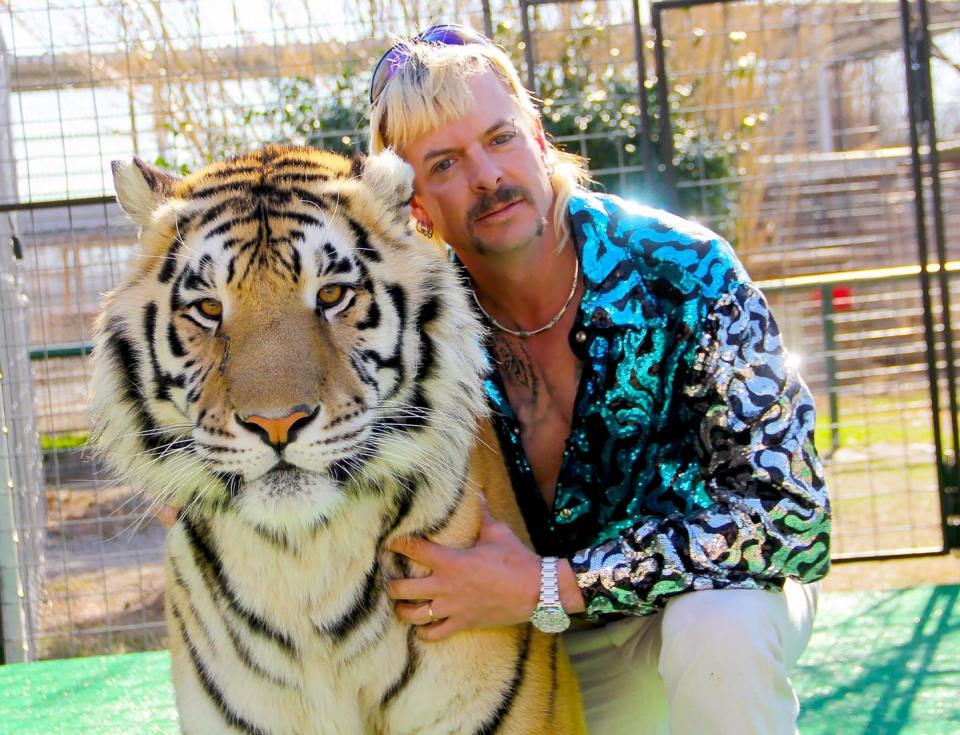
Related: What the Tiger King documentary didn't tell you about Joe Exotic and his husbands
Lions and tigers aside, the docu-series also cast a shadow over Carole, questioning whether or not she had any involvement in the disappearance of her ex-husband. This had been one part of Joe's obsessive and hateful narrative against her, and the focus of many of his disturbing and threatening online videos; one of which saw him shooting at a mannequin sporting a blonde wig.
The self-proclaimed "Tiger King" would continually imply that Carole had killed her former spouse, even filming a music video for a country music song called 'Here Kitty Kitty' in which a Carole lookalike could be seen feeding flesh to the tigers. This peddled a conspiracy theory that Carole had killed her ex-husband, and fed his body to her big cats (something she has vehemently denied, obviously).
Those who have now watched the series in full will be aware that Joe is currently serving time in prison for his role in a murder-for-hire plot that was said to be targeting Carole.
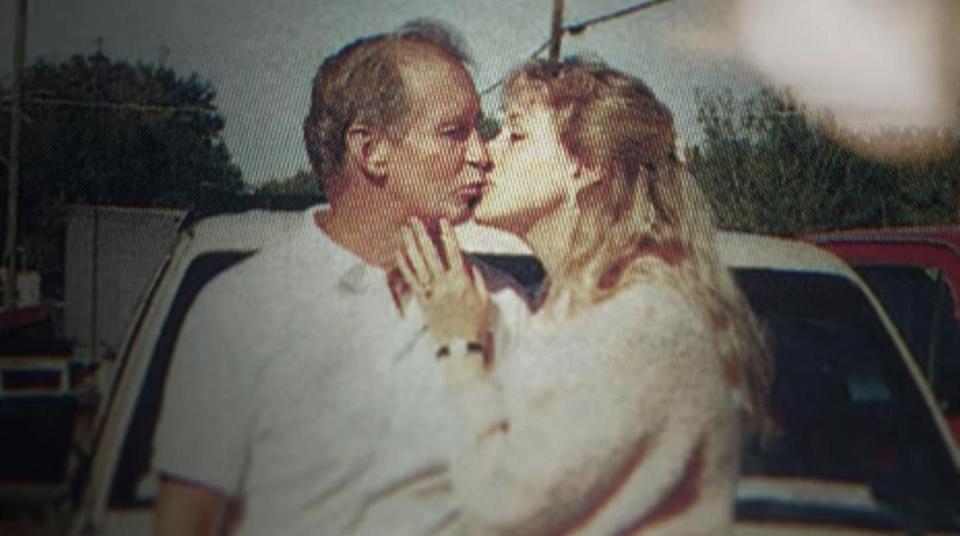
In 1997, Carole's former husband Don Lewis went missing without a trace. He was 60 years old at the time. Carole reported him missing and two days later Don's van was found at an airport (he owned his own planes and had been known to fly them uncharted).
Carole hired a private investigator and the police, of course, were conducting their own investigation, but no leads or sinister evidence were uncovered (via an archive article published on People in 1998). Don had mentioned a possible move to Costa Rica, but nothing was found there either.
As revealed in the series, before his disappearance Don Lewis had filed court documents seeking an injunction against Carole, with the accusation that she had threatened violence against him. She denies this ever took place between them.
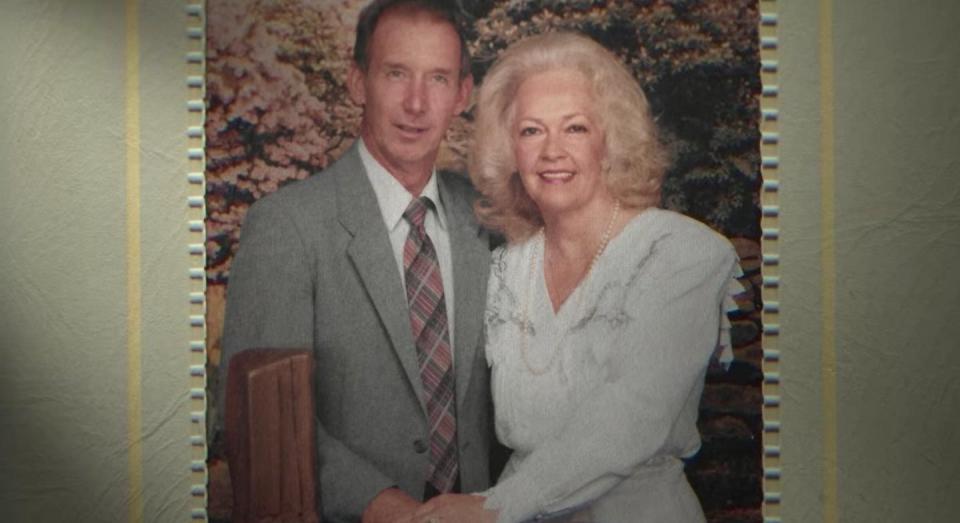
Carole still feels there's no closure. "Can you imagine having people think you killed your husband or wife and not being able to prove otherwise?" she said (via the aforementioned People report). "Without a body, there is nothing I can do to clear my name."
During a recent 2020 interview with Vanity Fair, which happened before the release of the Tiger King documentary (and before she'd had a chance to watch the finished product herself), Carole explained how uncomfortable she felt when it came to revisiting what had happened to her former husband.
"We gave [authorities] all of the information that they needed to go look at the court records and to see that I always dealt fairly and honestly with Don's daughters. He had been my best friend from the time that I was 19. I lost him in 1997, so talking about that turns up a lot of painful memories," she said.
In the interview, it was also revealed that Baskin had shared her own suspicions with Tiger King’s filmmakers about who she believed might know more about Don's disappearance.
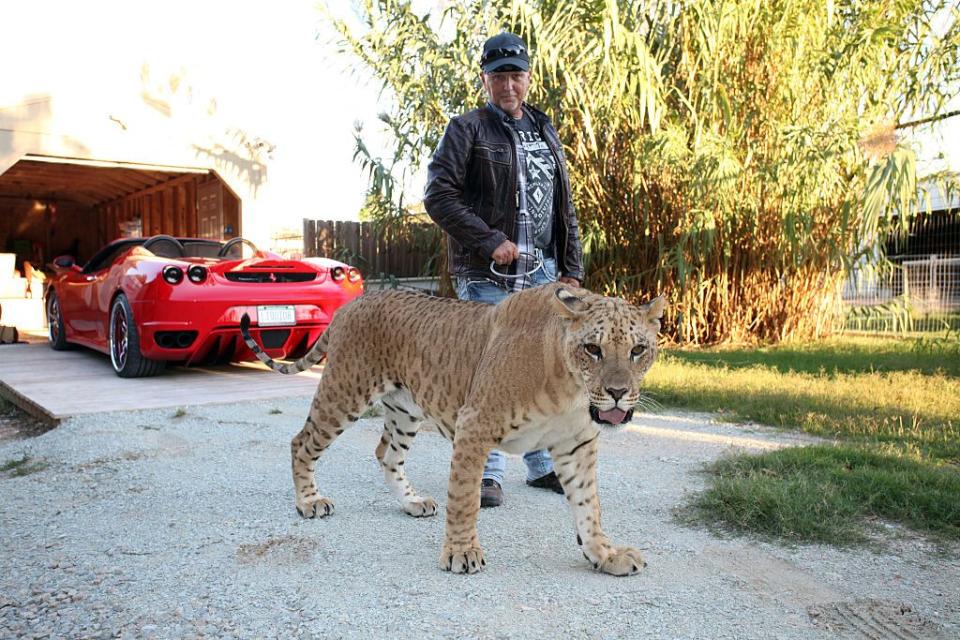
Since the release of the documentary, Jeff Lowe, Joe's one-time business partner and now owner of his former zoo, has come forward to allege that there was further information about Carole's missing husband that was not featured in the series.
During an interview for Lights Out With David Spade (via EW), he argued that "we know so much more than that documentary showed", also alleging that “Netflix whitewashed a lot of it".
It is worth noting that Lowe is currently the subject of lawsuit filed by Joe Exotic from prison, and his own suggested involvement in the very same murder-for-hire plot against Carole Baskin was brought forward as a talking point in Tiger King, though he was never formally charged, of course. It is also important to underline the fact that Carole Baskin cooperated with the authorities following her husband's disappearance in 1997.
Although Don Lewis was declared dead by a judge five years after he went missing, his body has never been found and the case remains unsolved.
In fact, according to the Hillsborough County Sheriff's office missing person registry, Lewis is still listed as a "missing endangered adult" and this week the Sheriff shared a new plea for leads.
Since @netflix and #Covid19 #Quarantine has made #TigerKing all the rage, I figured it was a good time to ask for new leads. #CaroleBaskin #DonLewis #Netflix #Tiger #BigCatRescue #JoeExotic #TigerKingNetflix #HCSO pic.twitter.com/LHoJcBZVOI
— Chad Chronister (@ChadChronister) March 30, 2020
Following its release, Carole has publicly criticised the show's handling of this aspect of the story in a lengthy post on bigcatrescue.org titled: 'Refuting Netflix Tiger King'.
The article claims that the filmmakers did not follow through on their initial pitch to do a Blackfish-style expose of the big cat industry, but instead "had the sole goal of being as salacious and sensational as possible to draw viewers".
Talking specifically about episode three, of which this is the primary focus, Carole's post continued: "As part of that, it has a segment devoted to suggesting, with lies and innuendos from people who are not credible, that I had a role in the disappearance of my husband Don 21 years ago. The series presents this without any regard for the truth or in most cases even giving me an opportunity before publication to rebut the absurd claims. They did not care about truth. The unsavoury lies are better for getting viewers."
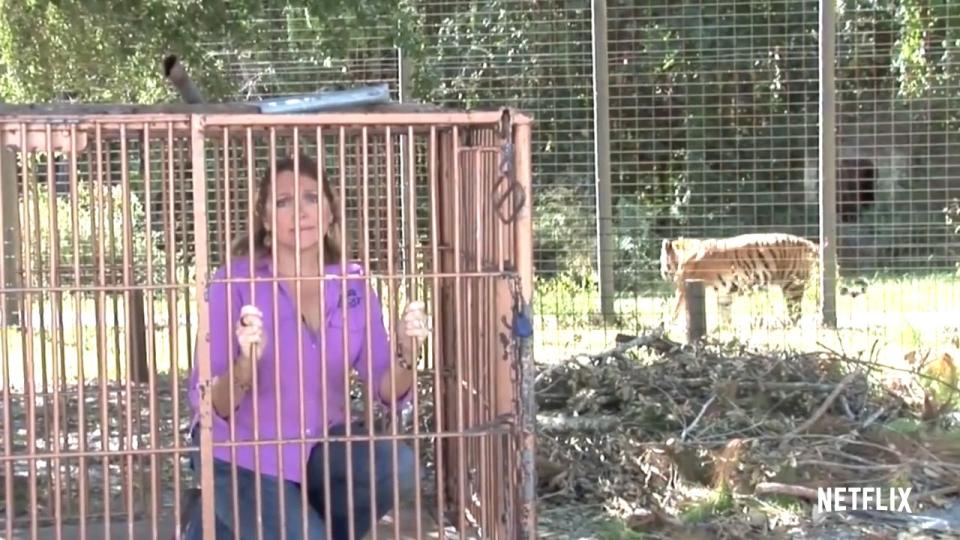
Proceeding to lay out her side of the story, Carole said that "Don's behaviour was gradually showing signs of mental deterioration" in the years before his disappearance, claiming that he had visited a number of doctors and was diagnosed with Bipolar Disorder.
In her article, Carole goes on to address what she labelled "supposed 'circumstantial' evidence" such as the meat grinder (which Carole branded "the most ludicrous of all the lies"), the van and the "irrelevant" discussion of whether Don would have been able to fly himself to Costa Rica.
"Don had purchased a number of properties in Costa Rica and after his disappearance one of the caretakers called and told me there were people reporting seeing him there," Carole claimed. "That is the only reason I urged the police to investigate there. But the series seems to imply I was suggesting he flew one of his planes there."
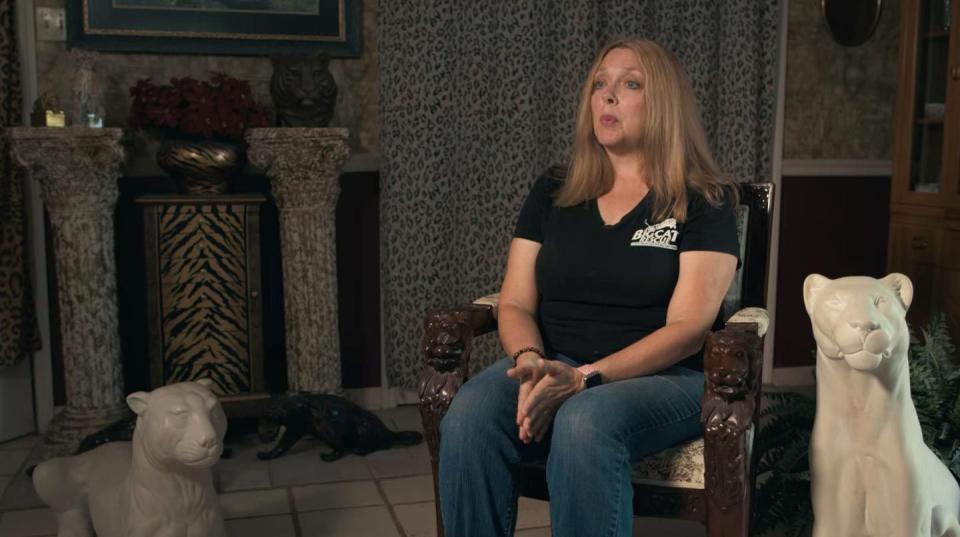
Carole also offered an explanation as to why "disappearance" was included in the Power of Attorney – something that was questioned and branded 'unusual' in the documentary.
"Don had told me about people going to Costa Rica and disappearing. Our Costa Rican attorney, Roger Petersen, said the Helicopter Brothers were the local version of the mafia and Don was loaning them money," she wrote. "That is why I included 'disappearance' as an event that would activate the Power of Attorney. I am sure attorney Joe Fritz is correct that this is unusual. It made perfect sense in this situation given what I was told by Don and by Peterson about Costa Rica and Don's dealings there at the time."
Ultimately, Carole underlined that she "never threatened him" and "certainly had nothing to do with his disappearance".
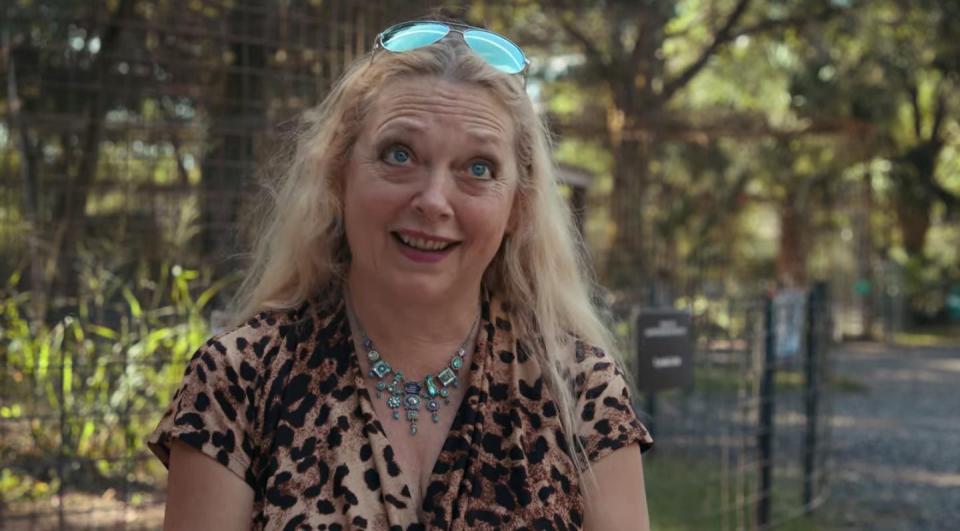
Since the documentary aired, county sheriff Chad Chronister has decided to reopen the case and he's now on the look new leads. Speaking to The New York Post, he said:
"I thought we should take advantage of the public’s fascination and glimmer any type of evidence we can get."
"The last thing we did was ask Carole to take a polygraph in 2011… She declined. It would not vindicate her and would not stop us from pursuing criminal charges against her at a later date."
Chronister is currently receiving six or so tips a day, and most seem speculative, but that doesn't mean the sheriff will discount them all at once:
"I hate to call any of them crazy,” he said. “These people led such complicated lives that any lead could be valuable."
Following Carole’s lengthy criticism of their series, the makers of Tiger King have now addressed her remarks.
In response to her claim that they sold her a very different documentary, pitching a Blackfish-style expose of the big cat world, Chaiklin told LA Times: "I would just say we were completely forthright with the characters. With any project that goes on for five years, things evolve and change, and we followed it as any good storyteller does. We could have never known when we started this project that it was going to land where it did."
"Carole talked about her personal life, her childhood, abuse... the disappearance of her ex, Don Lewis," Tiger King co-producer Goode added.
"She knew that this was not just about... it's not a Blackfish because of the things she spoke about. She certainly wasn't coerced."
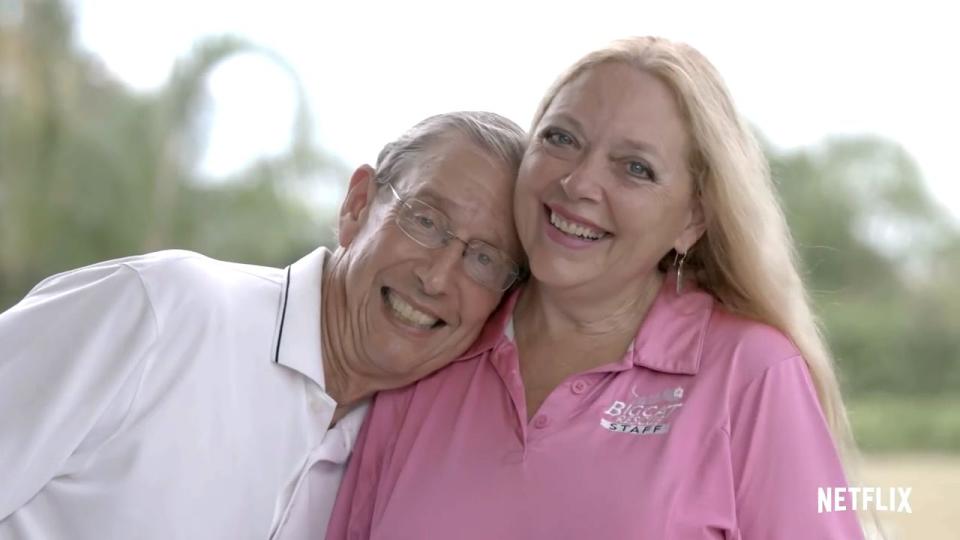
Carole and her new husband Howard Baskin, who featured in the series, are still continuing their work at the Big Cat Rescue Sanctuary.
We would argue that it was made quite clear in the documentary series that there was no evidence to support any wrongdoing on Carole's part when it came to the mystery surrounding her former husband Don Lewis. But that hasn't stopped armchair detectives and viewers from wanting to find out more about what actually happened to him.
A post shared by Louis Theroux (@officiallouistheroux) on Apr 5, 2020 at 1:14am PDT
One notable figure who's come out in Carole's defence is documentary film-maker Louis Theroux. Back in 2011, his own BBC documentary America's Most Dangerous Pets featured the story of Joe Exotic, which gave the presenter a unique insight into the case.
According to Louis Theroux, Baskin probably didn't feed her husband to the tigers, per The Independent: "My opinion is, it seems very unlikely."
When asked about Joe, the documentarian told fans that "the most troubling thing he said was probably that if the park went bankrupt he would kill all the animals".
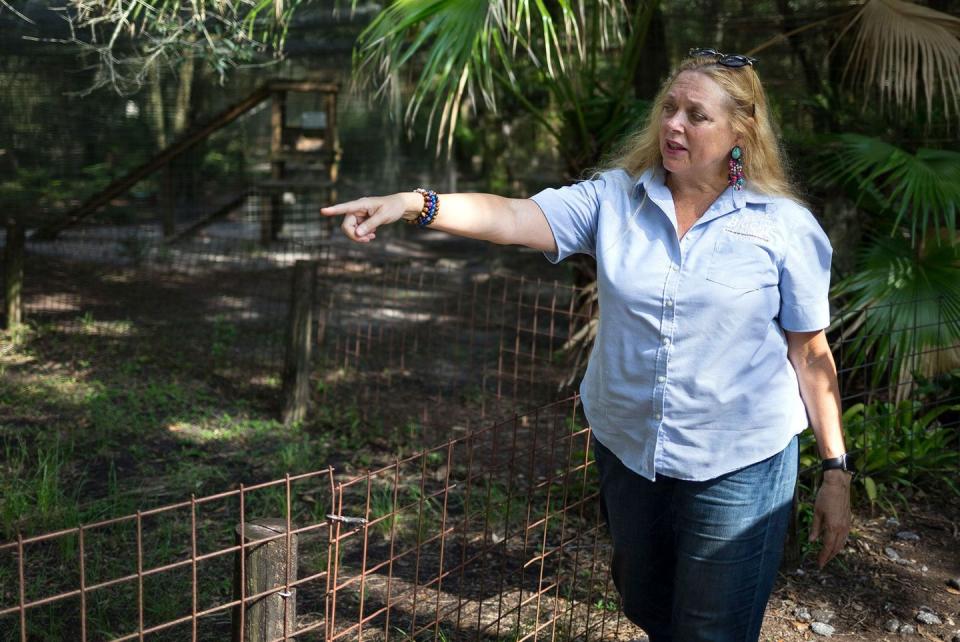
In terms of the animals, while Carole was clearly coming up on the opposing side of Joe Exotic and other private zoo owners breeding and making profit from the captivity of wild animals, it has to be said that there's plenty that can be criticised about her perspective too. She, after all, is still running an organisation that keeps these animals in cages.
Tiger King producer Eric Goode summarised that argument too, telling EW in a recent interview: "I think there's a lot of hypocrisy when it comes to Carole, and a lot of greenwashing."
"I think that what people should take away from the show and what one should do to protect tigers, in particular, big cats, is to support more programs in the wild," Goode continued, before adding that he has "mixed feelings about supporting places that so-call rescue big cats" because he isn't convinced "they're providing such a service".
Fellow producer Rebecca Chaiklin holds a slightly more nuanced stance, telling the publication: "I agree with Eric, but I do think at least she is raising awareness around this issue.
"At one point in time, she had the largest private collection of big cats in America and she was breeding like crazy. And she has evolved in her thinking over time, which you have to give her credit for. And she's smart, and she's on top of social media, and she figured out how to raise a lot of money. She's impressively intelligent, and she is helping in terms of the messaging that this is not a good practice and it's cruel to the animals."
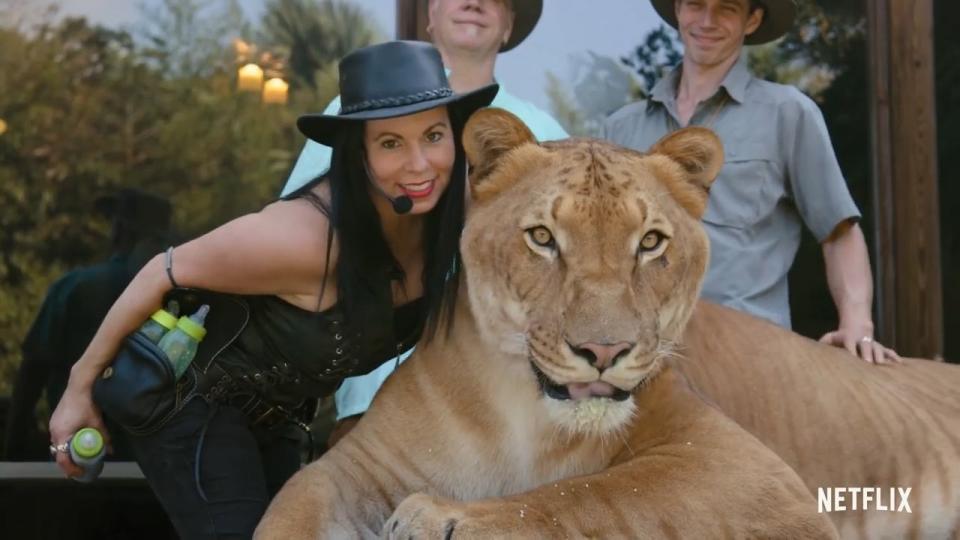
Whatever you think about Tiger King, it is a wild ride. With so much going on, it's important to take note of the biggest takeaway – there are between 5,000 and 10,000 tigers live in captivity in the US, but fewer than 4,000 tigers remain in the wild.
Hopefully, their story will be pushed back to the forefront in a rumoured extra episode which may soon arrive on Netflix, at least, if Jeff Lowe is to be believed.
So our friend @christie_dish listened to the podcast, @HoldingKourt and after last weeks episode decided to send us this!!!
🚨BREAKING NEWS FOLKS🚨
There will be 1 more episode of #TigerKing on@Netflix pic.twitter.com/YeRSIlDKTJ— Justin Turner (@redturn2) April 4, 2020
Speaking via social media on April 4, Jeff said: "Take care guys, we love you," before adding: "Netflix is adding one more episode, [it] will be on next week. We're filming here tomorrow."
Given that the documentary has now come under fire for a whole host of issues, this could represent a chance to fix the more problematic elements of the series while also answering some of the questions left dangling at the end of episode seven.
Carole had previously shared her overriding hope for the series (via Variety): "I think the most important thing is that everybody who pays to pet a cub or have an interaction with a big cat, is enabling all of this criminal activity that they're seeing in this documentary."
Tiger King: Murder, Mayhem and Madness is available to stream on Netflix.
Digital Spy now has a newsletter – sign up to get it sent straight to your inbox.
Want up-to-the-minute entertainment news and features? Just hit 'Like' on our Digital Spy Facebook page and 'Follow' on our @digitalspy Instagram and Twitter accounts.
You Might Also Like

